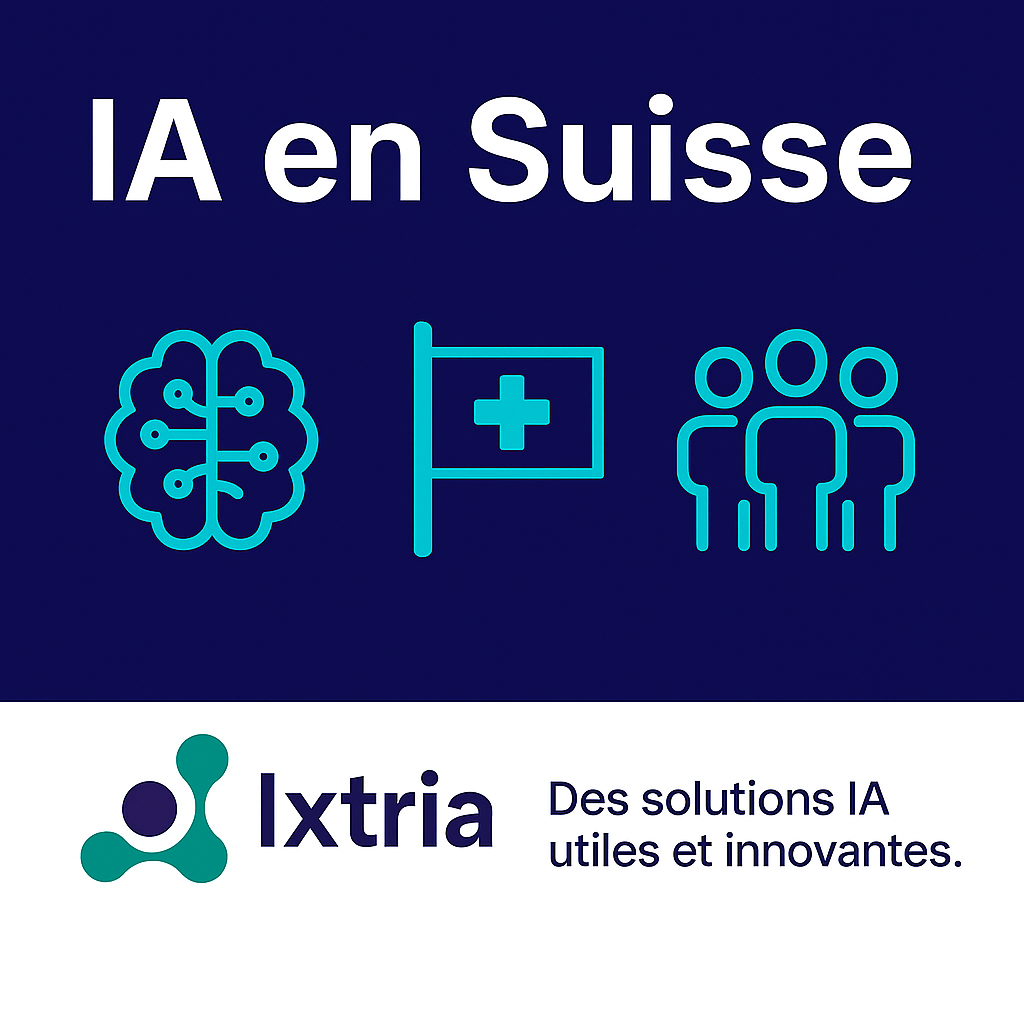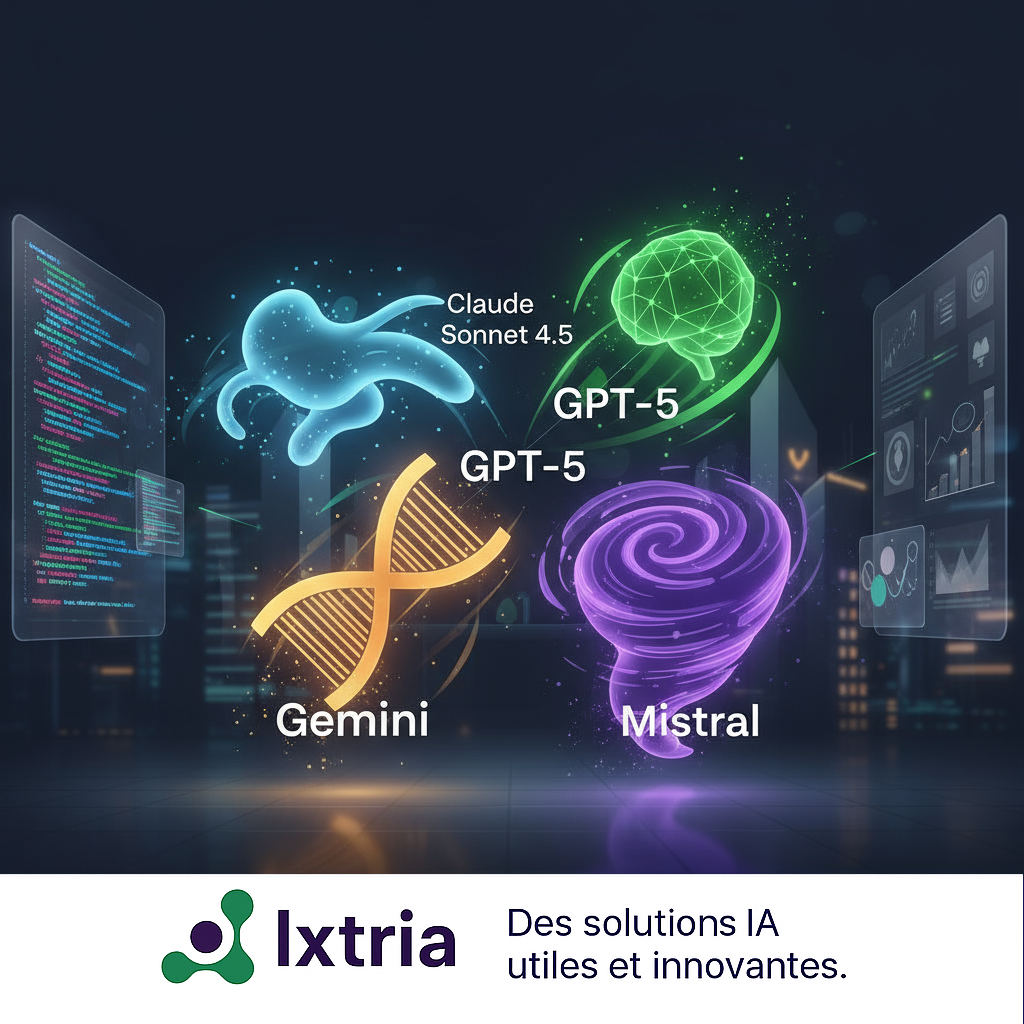By AIAgent / September 11, 2025
The latest developments in artificial intelligence (AI) in Switzerland highlight a dynamic ecosystem driven by rapid technological advances, emerging legal challenges, sectoral transformations, and major societal debates. Several key events this week illustrate both the accelerating progress of AI and the complex issues it raises — particularly for Swiss SMEs seeking AI solutions tailored to their needs.
1. The rise of generative AI and its legal controversies
This week was marked by a major financial settlement in the field of generative AI. U.S. start-up Anthropic agreed to pay $1.5 billion to avoid a lawsuit related to the illegal downloading of books. The case targeted the unauthorized use of copyrighted works obtained from pirate websites to train AI models. This agreement underscores the growing tension between technological innovation and copyright compliance — a crucial issue for Swiss SMEs aiming to develop or use AI responsibly in a complex legal landscape.
Meanwhile, generative AI continues to fuel social debates, notably in France, where it has become a “new fuel for online social anger.” This phenomenon reflects the broader societal impact of these technologies, which are transforming modes of communication and expression across social media.
2. Silicon Valley turns to defense and national security
A major shift is taking place in Silicon Valley, where tech giants like Google, Meta, and OpenAI, along with defense-focused firms such as Palantir and Anduril, are increasingly engaging with military and national security sectors. This cultural and strategic pivot positions AI as a key enabler of defense and intelligence capabilities. It also raises significant ethical and geopolitical questions around the militarization of AI technologies.
3. Europe invests in computing power with the Jupiter supercomputer
To close its gap in the global AI race, Europe has inaugurated its first exascale supercomputer, named Jupiter, located in Jülich, Germany. This ambitious project provides massive computational capacity — a critical requirement for training next-generation AI models. Jupiter embodies Europe’s determination to foster global collaboration in AI research amid intensifying international competition. Swiss SMEs can benefit from such advances by integrating more powerful AI solutions into their operations.
4. Hardware innovations: Nvidia boosts inference performance with Rubin CPX
On the technology front, Nvidia unveiled Rubin CPX, a new accelerator that combines the Rubin GPU with the Arm Vera CPU, integrated into the NVL1144 CPX system. This architecture is designed for AI inference — the application of pre-trained models to generate real-time predictions or classifications. Rubin CPX promises substantial gains in speed and efficiency for deployed AI systems, offering Swiss SMEs new opportunities to enhance performance and productivity.
5. Sector transformation: AI, robotics, and IoT revolutionize logistics
The logistics sector is undergoing a profound transformation driven by the integration of AI, collaborative robotics, and the Internet of Things (IoT). According to a recent report, more than 45% of logistics activities are expected to be automated by 2030. The market for autonomous mobile robots is growing at 23.7% per year, with a projected valuation of $10 billion by 2028. This technological synergy enhances efficiency, safety, and responsiveness across warehouses and supply chains, becoming an essential driver of competitiveness for Swiss SMEs in an increasingly globalized economy.
6. AI in the legal sector: rising adoption and 2030 outlook
AI is also transforming the legal industry. Since OpenAI’s ChatGPT launched in 2022, numerous players have developed specialized solutions for legal professionals, such as Predictice and European legaltech platforms. These tools deliver major productivity gains but require legal professionals to adapt their skill sets. AI integration within law firms is expected to become mainstream by 2030, reshaping organizational structures and workflows — a particularly relevant evolution for Swiss SMEs operating in legal services.
7. Regulation, training, and innovation: an evolving landscape
Finally, this week saw intense discussion around AI regulation, professional training, and technological innovation. These topics remain central to public and institutional debates, emphasizing the need for ethical and legal frameworks that balance rapid AI development with societal benefits. Swiss SMEs, too, must prepare for evolving regulatory requirements to maintain compliance and competitiveness.
Together, these developments capture the complexity and richness of the AI landscape in September 2025. From technical progress to economic transformation and ethical challenges, artificial intelligence continues to drive global change — offering innovative and pragmatic solutions for Swiss SMEs seeking to embrace the future responsibly.
Suggested images:
- Infographic showing AI’s impact on Swiss SMEs
- Photo of a supercomputer in operation
- Illustration of AI integration in logistics
- Chart showing the growth of the autonomous mobile robot market
Keywords:
– AI for SMEs
– AI solutions in Switzerland
– Artificial intelligence and logistics
– AI adoption in law
– Technological innovation in Switzerland


